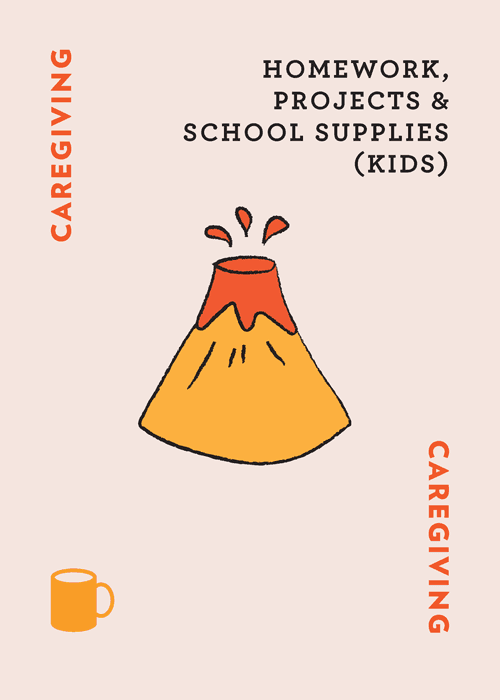The School Year Squeeze: How to Win Back Your Day
Aug 30, 2024
Silvia de Denaro Vieira & Eve Rodsky

School’s back in session, which means more child-free time for parents to focus on themselves… right? Apparently not. According to economists, parents actually tend to spend more time actively interacting with their kids once Summer vacation ends.
After analyzing data from school district schedules and the American Time Use Survey, economists Todd Jones, Jeff Swigert, and Benjamin Conwan found that parents sleep less, have less leisure time and exercise less during the school year than during the summer.
Another overarching pattern? Moms lose more time than dads when the school bell starts ringing–and spend more time "actively engaging" with their littles. In other words, they take on helping kids with homework and take on more household tasks. The average American mom allocates about 35 minutes more to caring for others each weekday during the school year, while the average dad sets aside about 7 minutes more a day.
More importantly, this increase in time spent on caregiving and housework during the school year comes at a steep cost for moms of young kids: they lose 37 minutes of sleep and 5 minutes of physical exercise per weekday.
But instead of keeping track of and comparing time spent on different tasks, we can use this time at the beginning of the school year to check-in with each other. Let’s think big-picture: for the next nine or so months, what about your family's division of labor needs to shift? What can stay the same?
You can use the Fair Play deck of cards to start the conversation and then add tasks into the Coexist app. Don’t forget to reshuffle cards throughout the year as your needs change. Here are a few Fair Play cards that might be worth discussing this week:

Bathing & Grooming
Your Minimum Standard of Care for your child during the summer months may be different than it is during the school year. When your child is constantly in and out of the pool, you might not be super worried about how their hair looks or the last time they showered – but when school is in session, staying fresh and clean might become a bigger focus.
Minimum Standard of Care: Are your children presentable to the world? Can you smell them from a mile away?

Homework, Projects & School Supplies
Not only are you relearning algebra to help your child with their homework, but you are also making sure your student has all blue attire for school spirit day. It’s vital to update the “Calendar Keeper” card holder on any upcoming events at school and ensure whoever is holding the “Morning Routine” card is set up for success on spirit and field days.
Minimum Standard of Care: What type of support do the kids need/prefer to get their homework turned in on time?

School Service
Who is volunteering to chaperone the upcoming field trip? Or helping with the upcoming bake sale for the volleyball fundraiser? This card may not be in play for your family, but if it is, redealing this card often is important.
Minimum Standard of Care: Does this card matter to your family? How active and responsive do you want to be within your school’s community?

Teacher Communication
Who is receiving and reading the teacher’s emails? Who’s scheduling the parent-teacher conferences and monitoring your child’s academic progress?
Minimum Standard of Care: What support is available for your child? Does it meet their needs?
Pro tip: If you have multiple children, it is OKAY to hold the same cards simultaneously with your partner, with each partner holding the card in relation to different kids. Still, make sure everyone is carrying out full Conception, Planning & Execution (CPE) for those cards.
Good luck to all the parents and caregivers navigating back-to-school season!
————————
Eve Rodsky transformed a “blueberries breakdown” into a catalyst for social change when she applied her Harvard-trained background in organizational management to ask the simple yet profound question: What would happen if we treated our homes as our most important organizations? Her New York Times bestselling book and Reese’s Book Club Pick, Fair Play, a gamified life-management system that helps partners rebalance their domestic workload and reimagine their relationship, has elevated the cultural conversation about the value of unpaid labor and care. In her highly anticipated follow-up, Find Your Unicorn Space: Reclaim Your Creative Life in a Too-Busy World, Rodsky explores the cross-section between the science of creativity, productivity, and resilience. Described as the ‘antidote to physical, mental, and emotional burnout,’ Rodsky aims to inspire a new narrative around the equality of time and the individual right to personal time choice that influences sustainable and lasting change on a policy level. Rodsky was born and raised by a single mom in New York City and now lives in Los Angeles with her husband Seth and their three children.
Learn more about Fair Play and Unicorn Space at fairplaylife.com